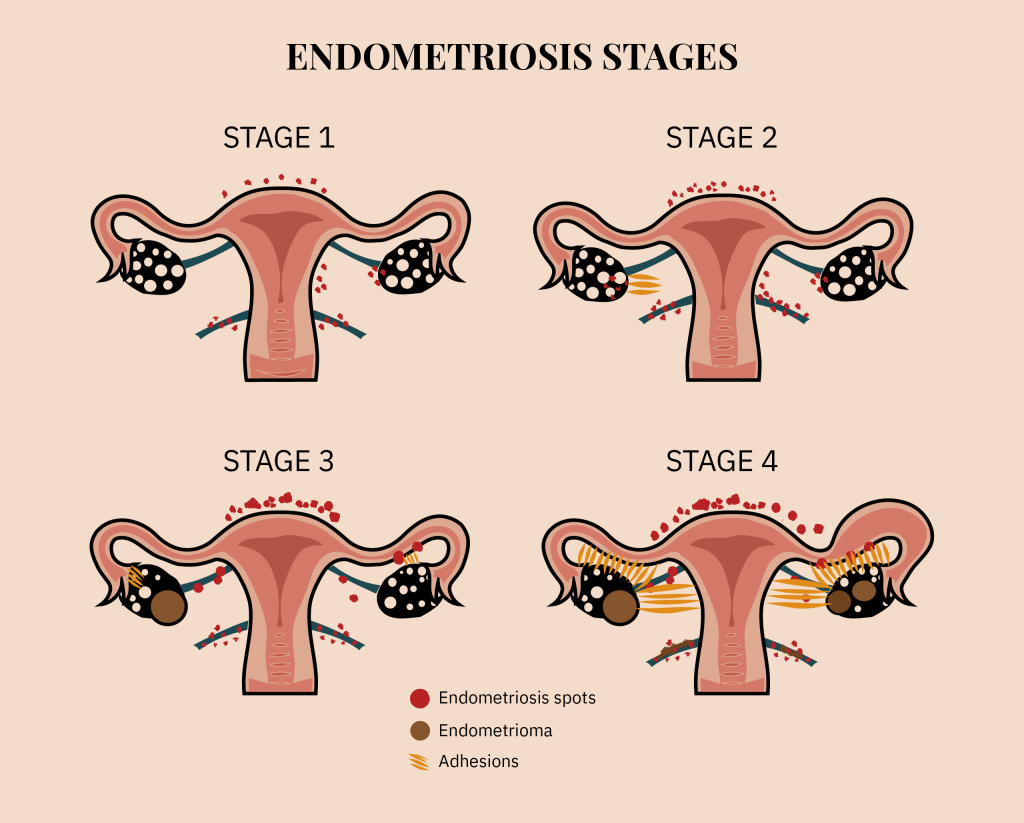
Brandi Rhodes, a prominent figure in the world of WWE, has recently shared a deeply personal and challenging health journey. The wrestler and television personality disclosed her diagnosis of stage 4 endometriosis, a severe form of a condition that affects millions of women worldwide. This revelation came after years of unexplained pain and medical consultations, ultimately leading to a significant surgical intervention. Rhodes’s openness about her diagnosis has sparked conversations about endometriosis, shedding light on a condition that is often misunderstood and underdiagnosed.
Table of Content:-
The Journey to Diagnosis
Brandi Rhodes’s journey toward her diagnosis began with persistent and debilitating pain. For years, she experienced symptoms that many women with endometriosis endure, yet often find difficult to articulate or have taken seriously by medical professionals. Inspired by fellow wrestler Maryse, who shared her own story about dealing with serous borderline ovarian tumours, Rhodes sought further medical advice. This led to the discovery that she was suffering from stage 4 endometriosis.
3 years of pain with no answers. @MaryseMizanin 's story encouraged me to press on. Many appts later, we found the answer. Stage 4 endometriosis. Successful surgery today. Ladies, listen to your bodies. We don't have to live with pain. Advocate for yourself. Finally on the road… pic.twitter.com/oQwoLVMz0Y
— Brandi Rhodes (@TheBrandiRhodes) May 22, 2024
Understanding Stage 4 Endometriosis
Endometriosis occurs when tissue similar to the lining inside the uterus grows outside of it. Stage 4 is the most severe form, characterised by extensive scar tissue, deep implants, large cysts on one or both ovaries and adhesions that can bind organs together. Despite its severity, the symptoms of endometriosis do not always correlate directly with the stage of the disease. Some individuals with advanced endometriosis might experience mild symptoms, while others with milder forms can suffer significantly.
Also Read: Selena Gomez's Pregnancy Rumors Makes Rounds On The Internet; Common Discomforts During Pregnancy
Symptoms of Stage 4 Endometriosis
The symptoms of stage 4 endometriosis can be diverse and often severe, impacting various aspects of a person’s life. According to the National Institutes of Health (NIH), pain is the most common symptom. This pain can manifest in several ways, including:
- Severe Menstrual Cramps: These cramps often go beyond typical period pain, sometimes becoming incapacitating.
- Pain During Sexual Activity: Dyspareunia, or pain during intercourse, is a frequent complaint among those with endometriosis.
- Painful Bowel Movements and Urination: These symptoms can be particularly pronounced during menstruation.
- Pelvic Pain: Chronic pelvic pain is a hallmark of endometriosis, often persisting even outside of menstrual cycles.
- Difficulty Getting Pregnant: Infertility or difficulty conceiving is a significant concern, as endometriosis can affect the reproductive organs.
- Heavy Menstrual Bleeding: Periods may be heavier than usual, with spotting or bleeding between cycles.

Diagnosing Stage 4 Endometriosis
Diagnosis of endometriosis, particularly stage 4, can be challenging and often delayed. Many women wait years for an accurate diagnosis due to the variability of symptoms and a lack of awareness among healthcare providers. Diagnostic methods include:
- Pelvic Exam: To check for cysts or scars behind the uterus.
- Ultrasound: An internal ultrasound can provide images of the reproductive organs.
- Laparoscopy: This surgical procedure is the definitive way to diagnose endometriosis, allowing doctors to directly observe and document the extent of the disease.
Treatment and Management
While there is no cure for endometriosis, several treatments can help manage symptoms. These treatments are tailored to the individual's specific needs, considering factors like age, desire to have children and pain severity. Common treatments include:
- Hormonal Therapies: Birth control pills and gonadotropin-releasing hormone (GnRH) agonists
- Pain Relief: Over-the-counter pain relievers or stronger prescription medications may be used to manage chronic pain.
- Surgery: In severe cases like Rhodes’s, surgical intervention may be necessary to remove as much of the endometrial tissue as possible.
The Impact of Awareness
Brandi Rhodes’s openness about her battle with endometriosis highlights the importance of awareness and education about this condition. By sharing her story, Rhodes joins a growing community of voices advocating for better diagnosis, treatment, and support for those affected by endometriosis. Her courage in facing this public and personal challenge serves as an inspiration and a call to action for improved healthcare for women everywhere.
Bottomline
Endometriosis, particularly in its advanced stages, is a complex and often painful condition that requires comprehensive management and understanding. Brandi Rhodes’s journey underscores the importance of seeking answers and advocating for one’s health. Her story not only brings attention to the realities of living with endometriosis but also inspires hope and resilience in those facing similar battles.
Also watch this video
How we keep this article up to date:
We work with experts and keep a close eye on the latest in health and wellness. Whenever there is a new research or helpful information, we update our articles with accurate and useful advice.
Current Version